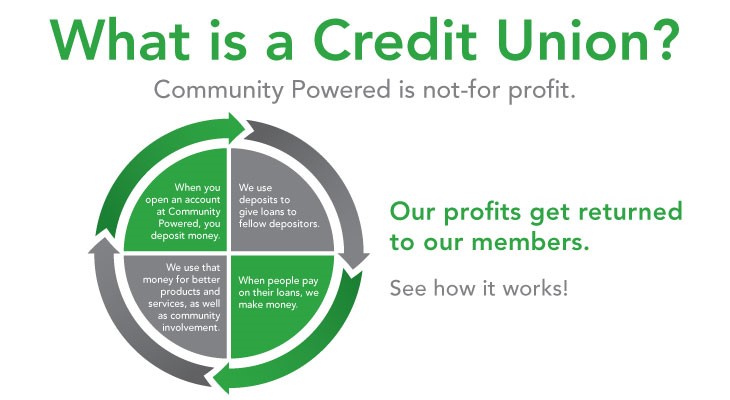Why Credit History Unions Are the Best-Kept Financial Key
In the realm of banks, credit report unions typically stay a well-kept trick, silently using a host of benefits that establish them apart from conventional banks. Their member-focused approach and dedication to neighborhood health develop a distinct monetary landscape that prioritizes individualized solution and tailored solutions. The inquiry remains: what specifically makes credit history unions the favored choice for those in the know?
History of Lending Institution

The concept of lending institution spread worldwide, with the very first cooperative credit union in The United States and Canada being developed in Canada in 1901 by Alphonse Desjardins. In the United States, the initial lending institution was established in New Hampshire in 1909 by Edward Filene and Roy Bergengren. These early credit report unions led the way for the cooperative banks we understand today, which focus on the financial health of their members over profit.
Benefits of Signing Up With a Credit Report Union
Stemming as a reaction to the limited accessibility to typical financial services, cooperative credit union provide a variety of engaging advantages to individuals seeking an extra community-focused technique to monetary services. Among the key benefits of signing up with a credit report union is the personalized customer care they offer. Unlike standard financial institutions, cooperative credit union are member-owned and operated, allowing them to focus on the demands of their members over maximizing profits. This typically results in more customized economic options, better passion prices on savings accounts, and reduced costs on car loans and various other financial products.

In addition, lending institution are deeply rooted in the neighborhoods they offer, often supporting regional efforts and charities. This community-driven method promotes a feeling of belonging and shared success among members, distinguishing lending institution as not just financial establishments however as columns of neighborhood support.
Credit Report Union Vs. Typical Bank
In contrasting credit report unions to standard banks, a distinctive contrast emerges in their ownership framework and functional emphasis. Cooperative credit union are not-for-profit economic cooperatives possessed by their members, who likewise usually have a say in the organization's decision-making processes with voting legal rights. This possession structure typically leads to much better rate of interest rates on interest-bearing accounts, reduced lending prices, and fewer fees compared to traditional banks, where profits are guided to shareholders. In addition, cooperative credit union tend to focus on offering their participants and the neighborhood as opposed to maximizing earnings. This member-centric strategy often converts into customized client service, economic education and learning programs, and a dedication to assisting participants enhance their financial well-being. On the other hand, typical financial institutions are for-profit entities possessed by investors, intending to generate earnings for their financiers. While financial institutions may supply a broader series of solutions and have extra this content extensive ATM and branch networks, they might not always prioritize the very best interests of individual clients in the exact same method credit rating unions do.

Neighborhood Impact of Credit Scores Unions
Credit rating unions play a vital function in improving the financial health of neighborhood areas. Unlike conventional financial institutions, credit report unions are not-for-profit companies that are owned and operated by their members. This one-of-a-kind structure allows cooperative credit union to prioritize the demands of their participants and the communities they serve over making best use of earnings.
One significant method debt unions influence regional neighborhoods is by offering access to budget-friendly financial solutions. Debt unions typically supply reduced rates of interest read the full info here on fundings, higher interest prices on interest-bearing accounts, and reduced charges contrasted to conventional banks. This financial help assists community participants achieve their financial objectives, whether it's buying a home, starting a local business, or saving for the future.
Furthermore, credit history unions are deeply rooted in the areas they serve. They frequently join regional occasions, enroller community initiatives, and assistance philanthropic causes. By buying the wellness of their neighborhoods, credit score unions help foster financial development, stability, and success for all locals. Eventually, lending institution play a vital role in building more powerful, more durable local economic climates.
Tips for Maximizing Cooperative Credit Union Subscription
Take advantage of all the services your credit score union offers. Credit report unions supply a vast variety of financial items such as savings accounts, financings, credit history cards, and financial preparation services.
Second of all, get involved in your credit union's neighborhood occasions and campaigns. Numerous lending institution actively support regional communities via various programs such as economic proficiency visit here workshops, fundraiser, and sponsorships. By taking part in these activities, you not only add to the improvement of your community however also build strong partnerships with various other participants and team.
Credit rating unions frequently introduce new items and solutions to meet their members' evolving needs. By remaining updated, you can take advantage of unique deals, price cuts, and awards customized to debt union members.
Final Thought
By prioritizing the economic health of their participants and sustaining local areas, credit score unions stand out as hidden gems in the monetary industry. Joining a credit score union can provide accessibility to budget-friendly monetary solutions, promote economic education and learning, and add to positive area influence.